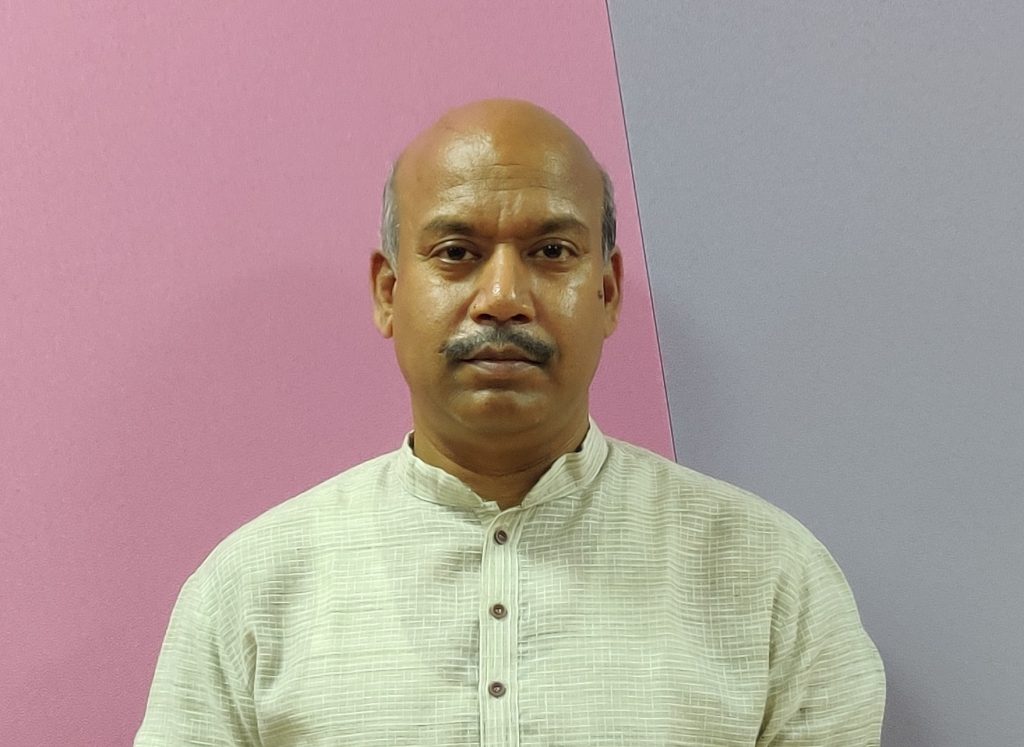by Prof. Sampadananda Mishra
Director, Centre for Human Sciences, Rishihood University
Introduction: The importance of knowledge and yoga has been highlighted repeatedly in the vast world of spiritual and philosophical teachings. But rarely do we come across a concise and profound verse that summarises the essence of both these elements as beautifully as the Yogakalpadruma composed by Swami Brahmananda. This lesser-known Yoga text distills the wisdom of Patanjali, Yajnavalkya, and other ancient yogis into just twenty-five elegantly composed verses. The article aims to illuminate the relationship between knowledge, mind, and Yoga through a verse from Yogakalpadruma.
The verse is:
ज्ञानं वदन्तीह विमोक्षकारणं तज्जायते नैव विलोलचेतसि |
लौल्यं न योगेन विना प्रशाम्यति तस्मात्तदर्थं हि यतेत साधकः ||
jñānaṃ vadantīha vimokṣakāraṇaṃ tajjāyate naiva vilolacetasi |
laulyaṃ na yogena vinā praśāmyati tasmāttadarthaṃ hi yateta sādhakaḥ ||
Translation:
The wise ones say that it is the jñānam or knowledge which is the gateway to liberation (vimokṣa-kāraṇa). But, that jñānam does not happen in a fickle mind (vilola-cetas). The fickleness or the unsteadiness of the mind does not dissipate without Yoga. Therefore, a sadhaka must make sincere efforts for practising Yoga.
Understanding the Verse
The verse begins by emphasizing the role of jñānam or knowledge as the key to liberation (vimokṣa-kāraṇa). This knowledge isn’t just any knowledge; it refers to a profound understanding, often associated with the realization of Brahman, the ultimate reality which is the source of all. This knowledge transcends worldly wisdom and is said to bring ultimate freedom.
The verse then draws attention to a significant obstacle in the pursuit of this knowledge—the unsteady or fickle mind. To attain higher knowledge, one needs a calm and focused mind. The term “vilola-cetas” describes a mind that constantly wavers, distracted by fleeting thoughts and desires. Such a mind cannot grasp the profound truths of existence.
To address the issue of an unsteady mind, the verse introduces the concept of Yoga. Yoga, in this context, refers to a systematic practice aimed at disciplining the mind and body. Through yogic practices, one can cultivate the mental stability and concentration necessary to embark on the path of knowledge and self-realization.
The verse concludes by highlighting the importance of sincere efforts (sādhanā) in the spiritual journey. To attain the knowledge that leads to liberation, one must diligently practice Yoga. It underscores the idea that spiritual growth requires discipline, dedication, and unwavering commitment.
Conclusion
The verse of Yogakalpadruma that we’ve explored offers profound insights into the relationship between knowledge, the mind, and the practice of Yoga. It reminds us that while knowledge is the key to liberation, a restless and unfocused mind can hinder our progress. Yoga serves as the bridge between the two, helping us cultivate the mental clarity and concentration needed to attain the highest knowledge.
As we seek wisdom and spiritual growth, let us remember the timeless wisdom expressed so lucidly in this verse. In order to achieve self-realization and liberation, we must acknowledge the significance of both knowledge and disciplined practice. The path may be challenging, but as a sincere sādhaka, one can ultimately attain the profound knowledge that leads to freedom.
PS: The author of this article has undertaken the work of translating and annotating Yogakalpadruma of Swami Brahmananda, and soon the work will be available in published form.
